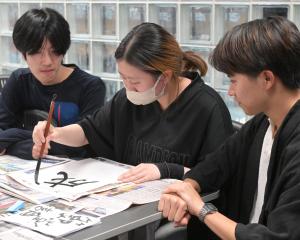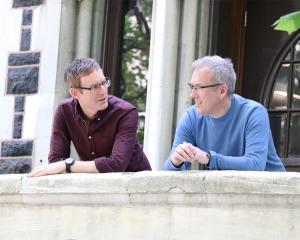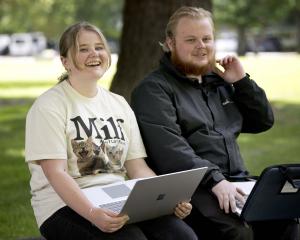
As the university’s provost since 2015, his main responsibility has been to decide on appropriate disciplinary action for those who breach the student code of conduct.
But after nearly a decade in the role, he stepped aside this week to focus more on his departmental duties.
Late last year, he was appointed associate dean of the School of Physical Education, Sport and Exercise Sciences, and is chairing its research committee — both of which he needed more time for.
Prof Hodge told the Otago Bulletin Board there was no one-size-fits-all approach to the provost’s job.
"One of the factors the provost takes into account is whether they’re a frequent flyer ... but we also consider what programme they’re studying, what kind of progress they’re making and other mitigating circumstances.
"For example, some of them are in difficult financial situations and they’re working part-time jobs.
"If I don’t have all that information available to me, then I could just hand out a punishment or disciplinary action that doesn’t fairly reflect the student’s overall circumstances.
"So, you make sure you take all that into account before you arrive at a conclusion.
"A breach may be very similar to a student you’ve just seen, but their personal circumstances won’t be identical."
While most students were not a danger to themselves or others, a small minority — less than 2% — stepped over the line.
Alcohol was most often an aggravating factor because it radically changed some students’ behaviour and personalities.
One of the main issues over the past decade had been the rise in flat initiations in Castle and Cumberland Sts.
"Some named flats seem to have a bit of a reputation and can attract students to whom the idea of being initiated, and then initiating those who follow them, appeals.
"The problem is, it’s become a bit of an arms race where successive groups feel the need to do what was done to them, but add something."
The resulting events were not only demeaning, but also dangerous to physical and mental health.
"Some ‘hosts’ fail to take into account the very serious risks involved and the reality that consent given by a ‘guest’ can’t be relied on as either freely given, or as covering activities that can spiral beyond what they ever expected."
Last year, the vice-chancellor excluded students because of flat initiations, which Prof Hodge hoped would send a clear message that the university takes these matters seriously.
"I think that by enforcing those disciplinary statutes and meting out appropriate disciplinary actions, that hopefully we’re changing unsafe student behaviours."
Part of the role was also to recommend forms of counselling to students, helping them "not go down a path that’s going to lead them to no degree, a lot of student debt, and worse — some of them could end up in front of the courts".
He saw the role as looking after every parent’s child at the university, and believed it was "a real honour" to be asked to fill the position for three, three-year terms.












